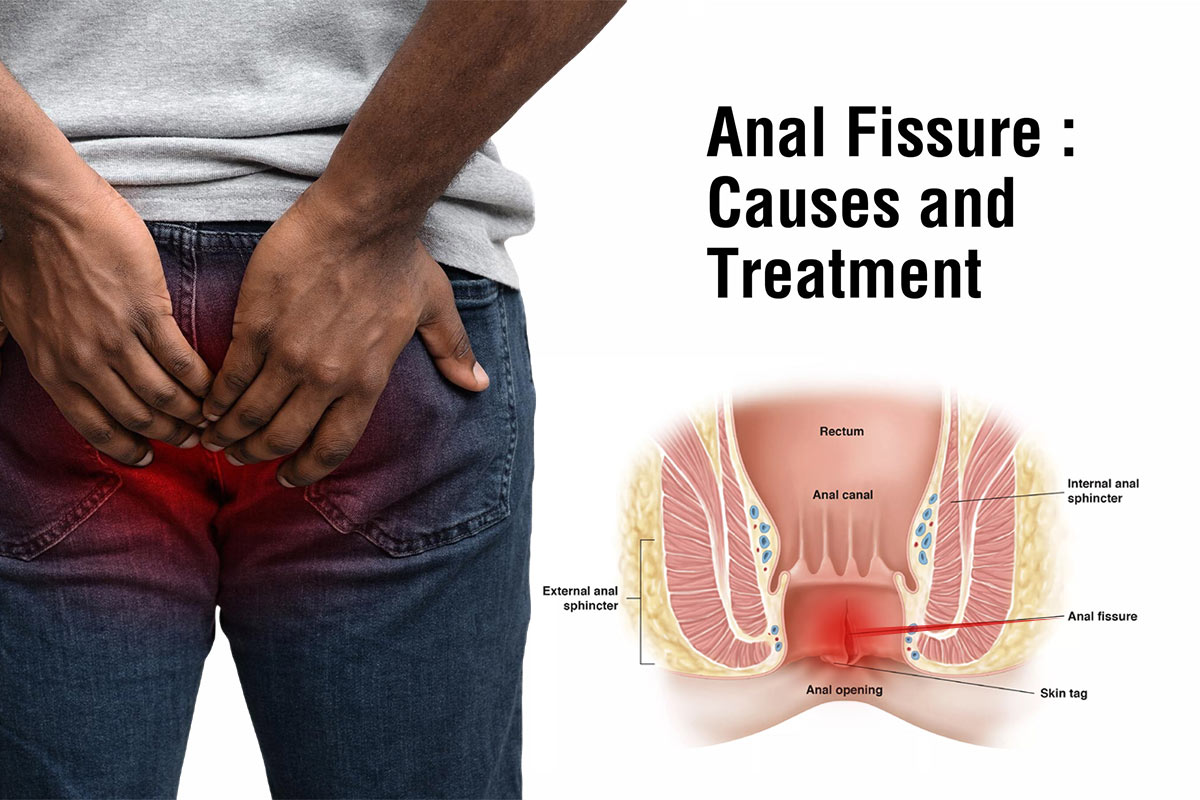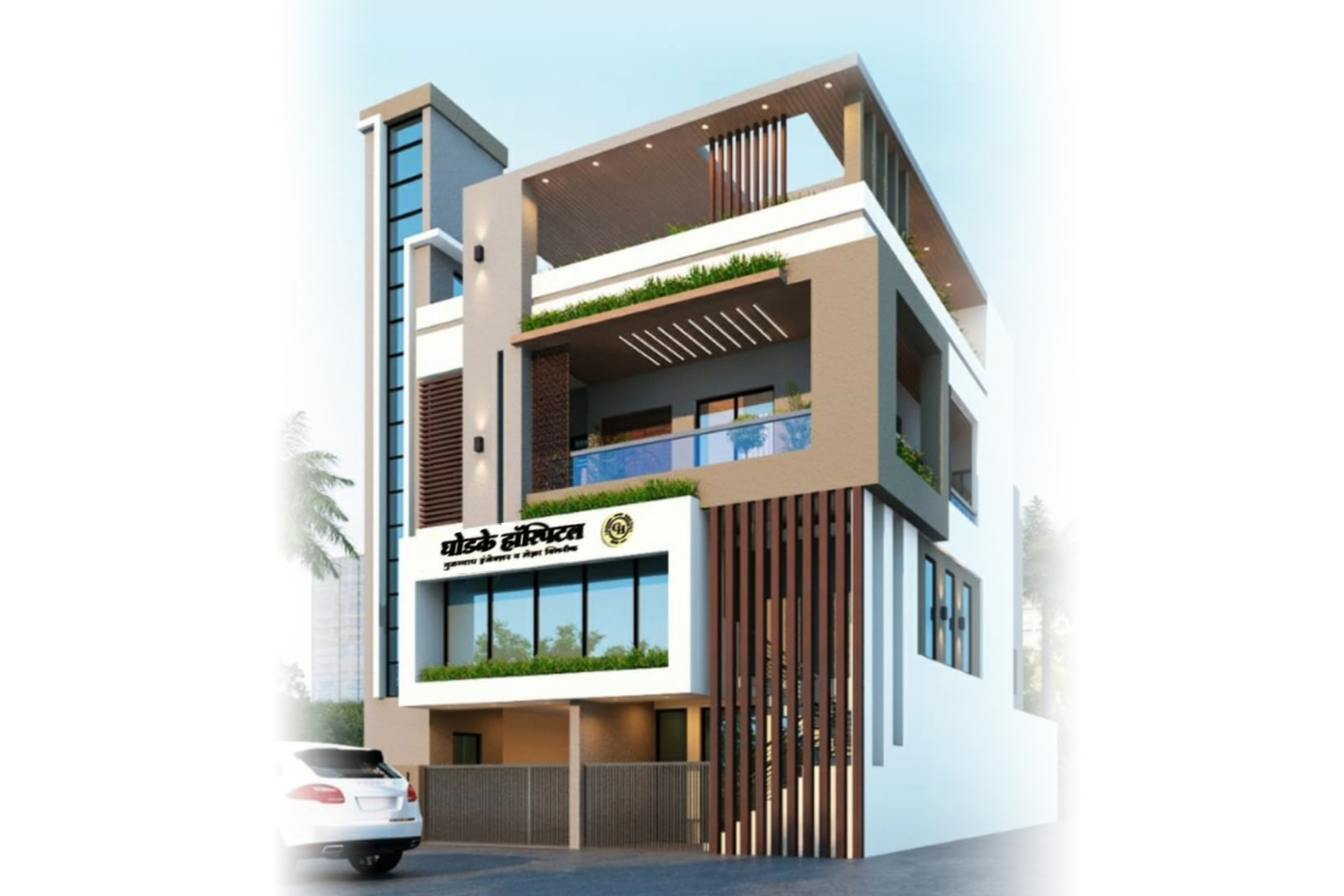Anal Fissure Treatment at Ghodke Hospital in Beed | Advanced Care

Introduction
Anal fissures can be an incredibly painful and frustrating experience. These small tears in the lining of the anus often lead to discomfort, bleeding, and a burning sensation, especially during bowel movements. But the good news? With professional treatment, like what’s available at Ghodke Hospital in Beed, you can find relief and prevent future complications.
Understanding Anal Fissures
What Causes Anal Fissures?
Anal fissures are usually caused by trauma or strain during bowel movements. This can happen due to chronic constipation, passing large stools, or even severe diarrhea. In some cases, anal fissures can be linked to underlying health conditions like Crohn’s disease or infections.
Symptoms to Watch Out For
Common symptoms include sharp pain during bowel movements, visible tears in the anal area, and blood on the toilet paper. If left untreated, these fissures can become chronic and require more extensive treatment.
Why Choose Ghodke Hospital for Treatment
Overview of Ghodke Hospital
Located in Beed, Ghodke Hospital is renowned for its high-quality medical care, particularly for conditions like anal fissures. With a team of experienced proctologists and advanced treatment options, the hospital offers a personalized approach to patient care.
Specialized Care for Anal Fissures
At Ghodke Hospital, the focus is on providing the most effective treatment for your specific condition. Whether your fissure is acute or chronic, their team ensures you receive the best possible care.
Common Treatment Methods for Anal Fissures
Non-Surgical Treatments
In many cases, anal fissures can heal on their own with non-invasive treatments. These methods focus on reducing the strain during bowel movements and promoting healing.
Surgical Options
For chronic fissures that do not respond to conservative treatment, surgery may be required. Ghodke Hospital offers both non-surgical and surgical solutions tailored to each patient’s needs.
Non-Surgical Treatment Options at Ghodke Hospital
Dietary Changes and Hydration
One of the first lines of treatment includes dietary modifications. High-fiber foods, combined with plenty of water, can make stools softer and easier to pass, reducing the strain on your anus.
Topical Ointments and Creams
Ghodke Hospital provides patients with medicinal creams and ointments that help relax the anal sphincter, reduce pain, and accelerate healing. These creams usually contain nifedipine or nitroglycerin.
Botox Injections
In some cases, Botox injections can help relax the muscles around the fissure, promoting healing without the need for surgery.
Advanced Treatments Available at Ghodke Hospital
Laser Treatment for Anal Fissures
Ghodke Hospital is equipped with state-of-the-art technology, offering laser treatment for anal fissures. This modern treatment is minimally invasive and provides faster recovery times compared to traditional surgery.
Advantages of Laser Treatment
Laser treatment is not only less painful but also reduces the risk of recurrence. It promotes faster healing, making it an ideal choice for many patients.
Surgical Treatment Options
Lateral Internal Sphincterotomy
If your anal fissure does not heal with non-surgical methods, a Lateral Internal Sphincterotomy may be necessary. This procedure involves making a small cut in the sphincter muscle to reduce spasms and promote healing.
When Surgery is Necessary
Surgery is typically considered when fissures become chronic or if there is significant discomfort that does not improve with other treatments.
Post-Treatment Care at Ghodke Hospital
Recovery Time and Tips
Recovery from anal fissure treatment depends on the method used. Non-surgical treatments may take a few weeks to show improvement, while laser and surgical treatments offer faster recovery.
Follow-Up Visits
Ghodke Hospital ensures that all patients receive appropriate follow-up care to monitor their progress and prevent recurrence.
Patient Experiences at Ghodke Hospital
Patients who have undergone treatment at Ghodke Hospital often praise the hospital for its excellent care, experienced staff, and successful results. From non-surgical to advanced treatments, the hospital has helped many patients recover from painful fissures.
Ghodke Hospital’s Commitment to Patient Well-being
At Ghodke Hospital, the commitment to personalized patient care is evident. The medical team tailors treatments based on individual needs, ensuring that each patient receives the best possible care.
Preparing for Your Visit to Ghodke Hospital
How to Book an Appointment
Booking an appointment is easy. You can either call the hospital directly or schedule through their online portal for convenience.
What to Expect During Consultation
During your consultation, the doctors will thoroughly evaluate your condition and recommend the most appropriate treatment plan.
Cost of Anal Fissure Treatment at Ghodke Hospital
Breakdown of Treatment Costs
The cost of treatment varies depending on the severity of the condition and the chosen method of care. Non-surgical treatments are generally more affordable, while surgical options, including laser treatments, may be higher in cost.
Payment Plans and Insurance Options
Ghodke Hospital offers flexible payment plans and works with most insurance providers to help cover the cost of treatment.
Preventing Recurrence of Anal Fissures
Lifestyle Changes for Long-Term Health
To prevent future fissures, consider incorporating more fiber-rich foods into your diet, staying hydrated, and avoiding straining during bowel movements.
Tips on Preventive Care
Regular exercise, proper hygiene, and avoiding excessive pressure on the anal area can help reduce the risk of recurrence.
FAQs About Anal Fissure Treatment
- Is laser treatment painful?
- Laser treatment for anal fissures is minimally invasive and involves less pain compared to traditional surgery.
- How long does it take to recover from surgery?
- Recovery times vary, but most patients see improvement within a few days to weeks.
- Can anal fissures heal without surgery?
- Yes, many anal fissures heal with non-surgical treatments like dietary changes, topical creams, and Botox.
- What causes chronic anal fissures?
- Chronic fissures are often caused by repeated trauma to the anal area, such as from ongoing constipation or severe diarrhea.
- How can I prevent an anal fissure from coming back?
- Eating a fiber-rich diet, drinking plenty of water, and maintaining good bowel habits can help prevent future fissures.
Ready to say goodbye to the discomfort of anal fissures?
Trust Ghodke Hospital in Beed for expert treatment and quick recovery. Book your consultation today and experience advanced, personalized care!



